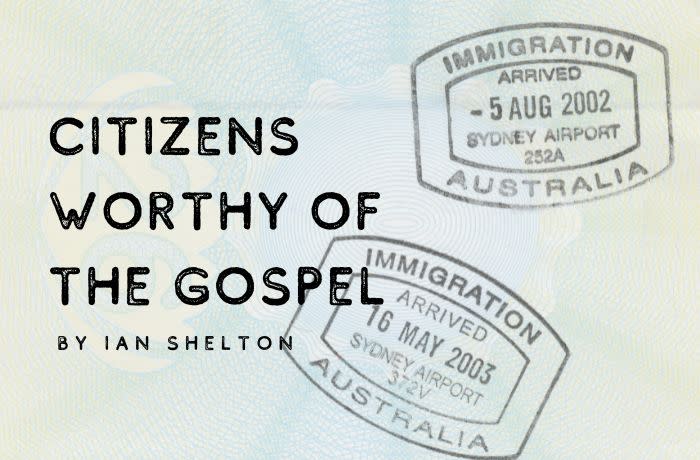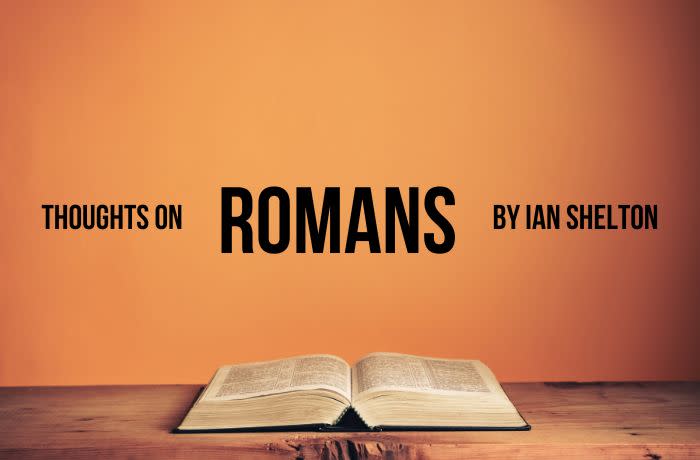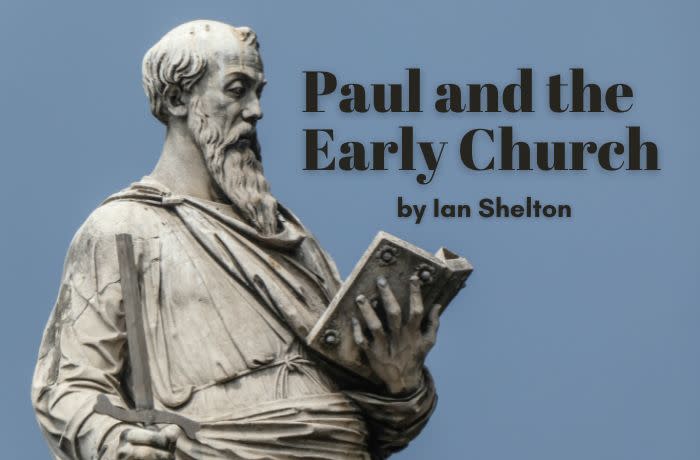Download our vision book
According to The Bible it is God's plan to create flourishing communities on earth that we now call towns and cities. His plan has always been to dwell in the midst of a community of His people in what The Bible calls a temple.
In the Old Testament this temple came to be Solomon's Temple in Jerusalem. In the New Testament this temple is the church in each city. This temple represents not only the place of worship and also the place of God’s rulership over the city.
Adam and Eve were God’s vice regents on earth. Their divine mandate was to rule the earth on God’s behalf by expanding the blessings of Eden to fill the entire planet as population grew over the years. Bible scholar, Dr T. Desmond Alexander, in his book ‘From Paradise to the Promised Land’ explains it this way.
“At the outset humans are created in order to enjoy a special relationship with God and to exercise authority on his behalf over the earth. Commissioned to fill the earth, they are to create a temple-city that will become God’s earthly residence. However, the disobedience of Adam and Eve alienates them from God, and as a result they are punished through divine curses and expelled from Eden. By betraying God, they disqualify themselves from serving as his vice-regents and so fulfilling their role as temple-city builders.” (Page 114.)
Alexander goes on to say, “The earliest readers or listeners to Genesis would have automatically associated the creation of God’s sanctuary on the earth with a city. They would have quickly realised that Eden was a greenfield site designated by God to be the location for his temple-city.” (Page 126)
(PLEASE NOTE: To understand the biblical exegesis in Genesis regarding the above conclusions please read Alexander's above mentioned book chapters 7 and 8. The book is the third edition and published by Baker, 2012.)
The human tragedy in Adam and Eve’s rebellion was to give over to Satan their divine mandate to be city builders. The Fall meant that humanity was now mired in soul destroying and city destroying sinfulness. Pride had entered the human condition, replacing the humility of a God-focus with a focus on self exaltation.
As Paul declares in Ephesians, “As for you, you were dead in your transgressions and sins, in which you used to live when you followed the ways of this world and of the ruler of the kingdom of the air, the spirit who is now at work in those who are disobedient. All of us also lived among them at one time, gratifying the cravings of our sinful nature and following its desires and thoughts. Like the rest, we were by nature objects of wrath.” (Eph. 2:1-3 NIV)
Humanity continues to have this inbuilt DNA to be city builders but since Adam’s rebellion the city building efforts have been inspired by Satan through the sinfulness of humanity. The result was that cities built after “The Fall” were erected to glorify “man” instead of God. Such cities feature, greed, selfish ambition, violence, abuse, rampart sexual perversion, and ultimately much injustice and human devastation. Yet on the surface most modern cities seem to be shiny monuments to the achievements of “man.” Typically humanity lives behind this false facade.
To continue the biblical account, no sooner had Adam and Eve relinquished their God given mandate to build God glorifying cities than their angry, violent son Cain kills his brother and builds the first city mentioned in The Bible. On the surface this city, called Enoch, seemed to be a productive and cultured community but its real “colours” of arrogance and cruelty saw it descend into violence and murder, even the murder of a child. (Gen. 4:16-24)
THE BIRTH OF BABYLON.
In Genesis 10-11 city building takes an ominous turn with the birth of what would become Babylon, the archetype anti-God city of violence, where the strong ruled and the weak were oppressed. Babylon features throughout The Bible until its final defeat in Revelation 18. Babylon was always anti-God, seeking only to glorify “man.”
The building of Babylon begins with Nimrod, the so called “mighty hunter” but he was really a violent terrorist who ruled ruthlessly. (See Gen. 10:9 margin comments in TPT regarding Nimrod. “Nimrod was a hunter of men (not simply animals), a potentate, a terrorist.”) Nimrod was a prolific city builder as shown in Genesis 10:8-12. However the key city that he built was called Babel, later known as Babylon. This was the ultimate “man” centred, status seeking city reflecting a false spirituality of attempting to reach heaven by human effort alone.
“Then they said, “Come, let’s begin work to build ourselves a city with a lofty tower that rises into the heavens. We’ll make a name for ourselves, a monument to us, instead of being scattered all over the earth.”
But when Yahweh came down to see the city and the tower which mortals had started building, he said, “If they have begun this as one people sharing a common language, then nothing they plan to do will be impossible for them. Come, let us go down and confuse their language and prevent them from understanding each other.”
So Yahweh scattered them over the entire earth, and they stopped building their city. That is why the city was called Babel—because it was there that Yahweh confused the language of the whole world and from there the people were scattered over the face of the earth.” (Gen. 12:4-9. TPT)
The Babylonian spirit seeks to build a “monument to us.” The temptation to self promotion and drawing attention to achievements, even in the church, is great indeed.
In a way The Bible is a ‘tale of two cities’. One city is built to glorify God and to provide a place of flourishing for humanity while the other exists to exalt the prideful ways of humanity in rejection of God. Of course the latter is under the inspiration of Satan. Ultimately people suffer in this city as society unravels at the human level.
In the Old Testament the city of Jerusalem was to model the heavenly city as a display of God’s good plans for all cities and towns. It was meant to be the city of peace or shalom where all could flourish under God, but instead became a city of idolatry and oppression known for injustice, another Babylon. In the New Testament the Church is the New Jerusalem modelling heaven to a broken world. (Heb. 12:22-23)
God’s desire is for humanity to build godly communities based on the blueprint of the heavenly community. In such a city or town God is at the centre and humanity flourishes. The marks of such a city would be sacrificial love, joy, beauty, and justice for the oppressed, all adding up to a community of shalom.
Question: Is the Church today an accurate model of the heavenly Jerusalem?
What is the Babylonian “spirit” and how does it manifest? Humanity seeks to be free of God and His values which are seen as restraints that restrict so called freedom.
Psalm 2:1-3 sums up the Babylonian spirit well.
Why are the nations so angry? Why do they waste their time with futile plans? The kings of the earth prepare for battle; the rulers plot together against the LORD and against his anointed one. “Let us break their chains,” they cry, “and free ourselves from slavery to God.” (NLT)
In the last great battle in Revelation 18 we see two classes of leaders who dominate and shape the spirit of Babylon.
He shouted out with a thunderous voice: “Fallen, fallen is Babylon the great! She has become a demonic dwelling place, a prison for every unclean spirit, unclean bird, and every unclean, detestable beast. All the nations have drunk of the wine of her immoral passion, and the kings of the earth have committed fornication with her, and merchants of the earth have grown wealthy because of her power and luxury.” (Rev. 18:2-3 TPT)
The “kings of the earth” are what we would call the political leaders of the city, and the “merchants of the earth” are the business and commercial leaders in a city. Ungodly leaders will seek to dominate and control, exercising selfish ambition and greed to enrich themselves. The result is injustice and oppression for many, the opposite of shalom. Notice in the scripture that this evil city impacts nations. Added to this mix is idolatrous religion, permissive sexuality and the occult. All of this adds up to the unravelling of family life and the community in general.
The question of history is, “Will the cities of the earth reflect Babylon or the New Jerusalem?” The good news is that in the end the gospel of Christ triumphs and Babylon is no more.
“Just like this, the great city Babylon will be thrown down with violence and will never be found again.” (Rev. 18:21 NLT)
Then wonderful praise breaks out as the heavenly city, the New Jerusalem descends to fill the earth with His glory, healing nations and removing the curse forever. (Rev. 19-22) Nations will be blessed and the kings of the earth will bow before the Lamb who sits on the Throne.
Ian Shelton is Coordinator of Momement Australia



